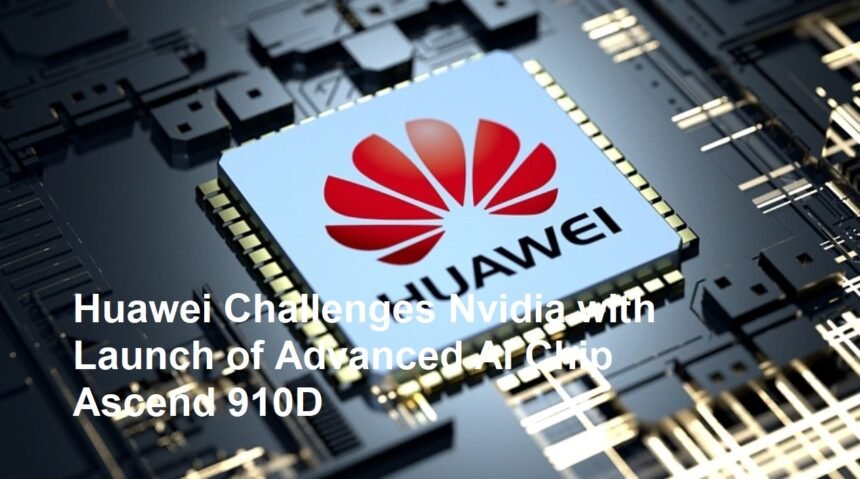Huawei Technologies, the Chinese tech giant, has announced the development of its latest artificial intelligence (AI) chip, the Ascend 910D, positioning itself as a formidable competitor to Nvidia in the rapidly evolving AI hardware market. The Ascend 910D is touted as one of the most advanced AI processors globally, designed to accelerate AI computing power and support a wide range of applications from data centers to autonomous systems.
Background and Market Context
Nvidia has long dominated the AI chip market with its powerful GPUs widely used in machine learning, deep learning, and data analytics. However, the growing demand for AI capabilities across industries has spurred competition, with companies like Huawei investing heavily in developing proprietary AI chips to reduce reliance on foreign technology and enhance domestic innovation.
Huawei’s Ascend series has been part of its broader strategy to build an AI ecosystem, including hardware, software, and cloud services. The new Ascend 910D represents a significant leap forward in this effort.
Technical Specifications of Ascend 910D
The Ascend 910D chip is built using Huawei’s latest semiconductor technology, featuring:
- High Computing Power: The chip delivers up to 256 teraflops (TFLOPS) of AI computing performance, making it one of the fastest AI processors available.
- Energy Efficiency: Designed with advanced power management, the Ascend 910D offers superior performance per watt, addressing the growing concern over energy consumption in AI data centers.
- Advanced Architecture: The chip incorporates Huawei’s proprietary Da Vinci architecture, optimized for AI workloads such as neural network training and inference.
- Scalability: Ascend 910D supports multi-chip scaling, enabling deployment in large-scale AI clusters for complex computations.
Strategic Significance
Huawei’s launch of the Ascend 910D is a strategic move to challenge Nvidia’s dominance and assert China’s position in the global AI technology race. The chip is expected to be integrated into Huawei’s AI cloud services and data center solutions, providing a competitive edge in performance and cost.
The development also aligns with China’s broader national goals to achieve technological self-reliance amid ongoing trade tensions and restrictions on access to foreign semiconductor technologies.
Market Impact and Competition
Nvidia’s GPUs have been the industry standard for AI processing, favored for their versatility and robust software ecosystem. However, Huawei’s Ascend 910D aims to offer comparable or superior performance tailored specifically for AI workloads, potentially attracting customers seeking alternatives to Nvidia.
The competition is likely to drive innovation and price competitiveness in the AI chip market, benefiting end-users and accelerating AI adoption across sectors such as healthcare, automotive, finance, and telecommunications.
Challenges and Outlook
Despite the promising capabilities of Ascend 910D, Huawei faces several challenges:
- Global Market Access: Trade restrictions and geopolitical tensions may limit Huawei’s ability to market the chip internationally.
- Ecosystem Development: Competing with Nvidia’s mature software and developer ecosystem requires significant investment in tools, frameworks, and partnerships.
- Manufacturing Constraints: Producing cutting-edge chips depends on access to advanced semiconductor fabrication technologies, which may be affected by export controls.
Nevertheless, Huawei’s commitment to innovation and investment in AI research positions it well to overcome these hurdles.
Industry Reactions
Experts view Huawei’s Ascend 910D as a bold step that could reshape the AI hardware landscape. The chip’s high performance and energy efficiency are seen as key advantages, especially for large-scale AI deployments.
Nvidia has acknowledged the increasing competition but remains focused on expanding its product portfolio and software capabilities. The rivalry is expected to accelerate technological advancements and broaden options for AI practitioners worldwide.
In summary, Huawei’s introduction of the Ascend 910D AI chip marks a significant challenge to Nvidia’s leadership in AI hardware. With cutting-edge performance and strategic importance, Ascend 910D could play a pivotal role in the future of AI computing, particularly within China’s growing tech ecosystem.









